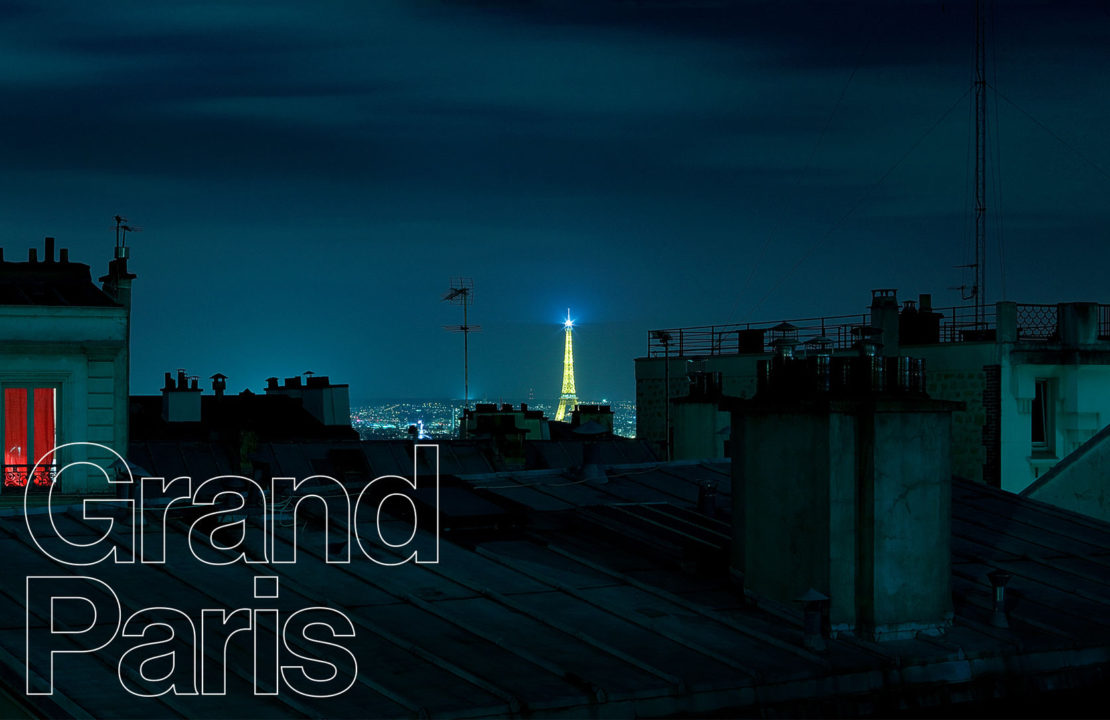
Grand Paris
The rue Mouffetard in Paris's 5th arrondissement is a living portrait of Frenchness that is so delightful, in such a textbook way, that it is almost embarrassing. The cobbled street is lined with little independent fromageries and boulangeries. The cafes are filled with wood panelling, confit duck and people reading books about philosophy. There are grocers with gleaming pyramids of fruit, and aproned staff who emanate so much charm it seems scripted. Go on a Sunday and there really is a man playing an accordion.
My wife and I live in a small flat round the corner. It's affordable because she has been there for eight years and rent control laws prevent the amount we pay from mirroring the area's soaring prices (in London the same figure would get us a bedsit in Croydon). I regularly pop down to the rue Mouffetard for food and wine. It's a delight, and yet the Londoner in me, the one trained to always ask, "What's the catch?", is forever troubled. "Is this real?" he asks, frowning like Jim Carrey in The Truman Show. "Like, really real?" The fact that there are a handful of shops on Mouffetard selling Eiffel Tower golf tees and Champs d'Elysées tea towels means I can never just relax and enjoy the experience. I am on some level worried that I've spent a year and a half living like one of those visitors to London who think the locals shop for tea in Whittard's. Is there one cheesemonger for serving authentic people and another for tricking tourists? Being not quite of either category, how will I know which is which? Or is this, perhaps, the exact state of Paris in 2015, where tourist shops are as much a kind of standard neighbourhood business as a sofa warehouse in south London? In other words, is Paris just a kind of museum?
This, I've come to realise, is the default opinion of the English-speaking observer from abroad: Paris, and France in general, may be pretty but it is also declining, backward-looking, irrelevant. The British and US media like tell a story of French stagnation – economic, cultural and social. A New York Times piece from 2013 (Goodbye Old World, Bonjour Tristesse) offered a fairly typical list of things the anglophone press thinks the French are miserable about: "High unemployment and low hopes, the onerous taxes that drove Gérard Depardieu to flee, conflicts with immigrants, political scandals, Hollande fatigue, Germany envy, economic stagnation, a hyperelitist education system and cold, rainy weather."
The British and US media like to tell a story of French stagnation – economic, cultural and social. Paris, and France in general, may be pretty but it is also declining, backward-looking, irrelevant
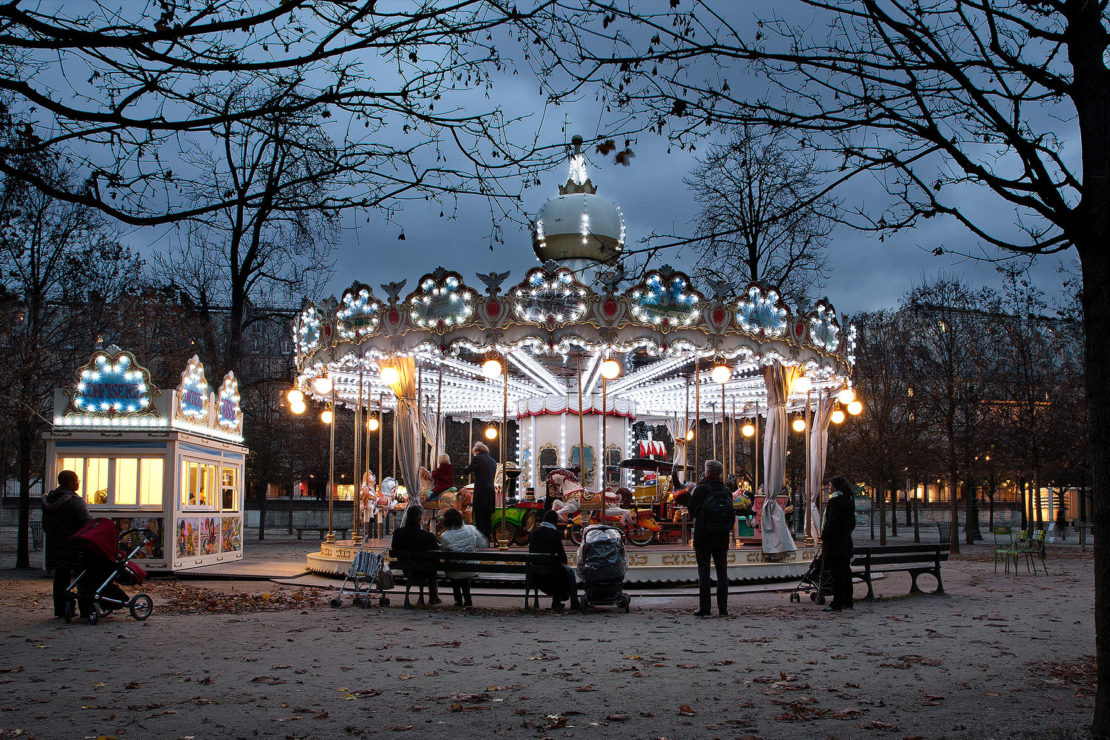
A common thread in French-bashing is the idea that most of these troubles derive from an aversion to change: economic stagnation may well be temporary, or even overstated, but cultural stagnation is embedded in the national mindset. A classic example of this is the subject of food. "Isn't the food in Paris terrible these days?", I am often gleefully asked. The received wisdom is that what was once the greatest culinary city in the world has, through sheer arrogance and complacency, let itself be surpassed by the dynamism of New York and London.
There is an element of truth to this. Paris has many, many beautiful places in which to eat terrible food and drink revolting coffee. But Paris's food scene is in fact more lively and varied than its global reputation allows. In the 18th arrondisement, for example, is Le Bal Cafe which, in serving – of all things – modern British cuisine, is emblematic of a Paris increasingly open to new culinary experiences. "It's a very new, very vibrant scene for restaurants," owner Alice Quillet tells me after lunch service (the restaurant is still packed). "I think it's changed tremendously. It all started in the late 1990s on the back of thebistronomie movement, where some of the Michelin-starred chefs started going back to bistro food. Before all that it was very stuffy. Either you were a brasserie or a restaurant or a hotel restaurant and there were very set codes of what each should be. Bistronomie was the beginning of a different way for people to cook. Young foreign chefs who would previously only have gone to New York or London started coming to Paris and finding it interesting."
Explore
How Japan, the supposed 'sick man of Asia', might be a model for us all In search of the renewable cityThese include Australian chef James Henry of Bones, where ultra-modern French cuisine is served in a vaguely Brooklyn-style setting; Dai Shinozuka, the Japanese chef who took over neo-bistro Les Enfants Rouges in 2013; and Gregory Marchand, a Frenchman who trained in London and New York and whose restaurant's name, Frenchie, is what Jamie Oliver called him when he worked at Fifteen.
Quillet concedes that it would be easy for a visitor to Paris to come away with the wrong impression. "So many places, particularly the brasseries in touristy areas, have quite expensive menus and a lot of it's already premade and reheated. A lot of it comes from Metro, a wholesale food place. Everything is frozen." I'm reminded of the British catering service 3663, which provided premade lamb shanks to many a lazy gastropub. In Paris, Quillet lays part of the blame for this practice on high labour costs. "If I pay a chef €1600, I pay double really because another 1600 goes into their retirement, pension, and everything that I pay in terms of social costs. Of course, it's great that any employee has this medical coverage and time off. It's a really good quality of life for my employees, but harder for owners."
The bistronomie movement started as a reaction to a flagging French economy: it made high-quality, traditional food available at cheaper prices; and has developed into something more adventurous in the form of the 'neo-bistro'. It is these restaurants, rather than their luxury counterparts, that are now seen as the powerhouses of creativity in French food. As for international food, the good stuff is still rare in Paris but it is becoming more available. Wander the streets of central Paris and you will spot some of the mainstays of Anglo-American foodism: a taqueria with a cocktail bar behind a hidden door ("It’s a joke in New York to have that speakeasy theme but in Paris it's like a revolution in the bar scene," says Quillet); and a scattering of gourmet burger joints, notably Blend, devised after Victor Garnier spent six months on a burger tour of the US. Have any French innovations taken off internationally? "The natural wine scene. It was a revolution in French wine, and now the big thing in New York is to drink obscure organic wines from the Jura."
Of course, winemaking in France belongs to a tradition that stretches back for millennia. While many modern food movements are a lot to do with 'rediscovering' and then fetishising this or that once-ubiquitous tradition, contemporary French food retains an unbroken connection to a great past. Perhaps that's why it tends to be less excitable about its achievements. "The whole modern British food movement," says Quillet, "is really people rediscovering techniques that their ancestors used. The industrial revolution destroyed all the regionality of food in the UK but France has always kept that. In London now if you look at a menu it'll tell you the provenance of everything: 'It's from this orchard in this area, blah blah blah.' It's self-congratulatory." As far as Parisian food culture is concerned, whatever the horror stories about microwaved duck or margarine-laden croissants, there is still, day-to-day, a base-level respect for food that surpasses that of both London and New York. Excellent food markets are not fodder for self-validating Instagram updates; they're just a normal part of life.
The bistronomie movement started as a reaction to a flagging French economy: it made high-quality, traditional food available at cheaper prices; and has developed into something more adventurous
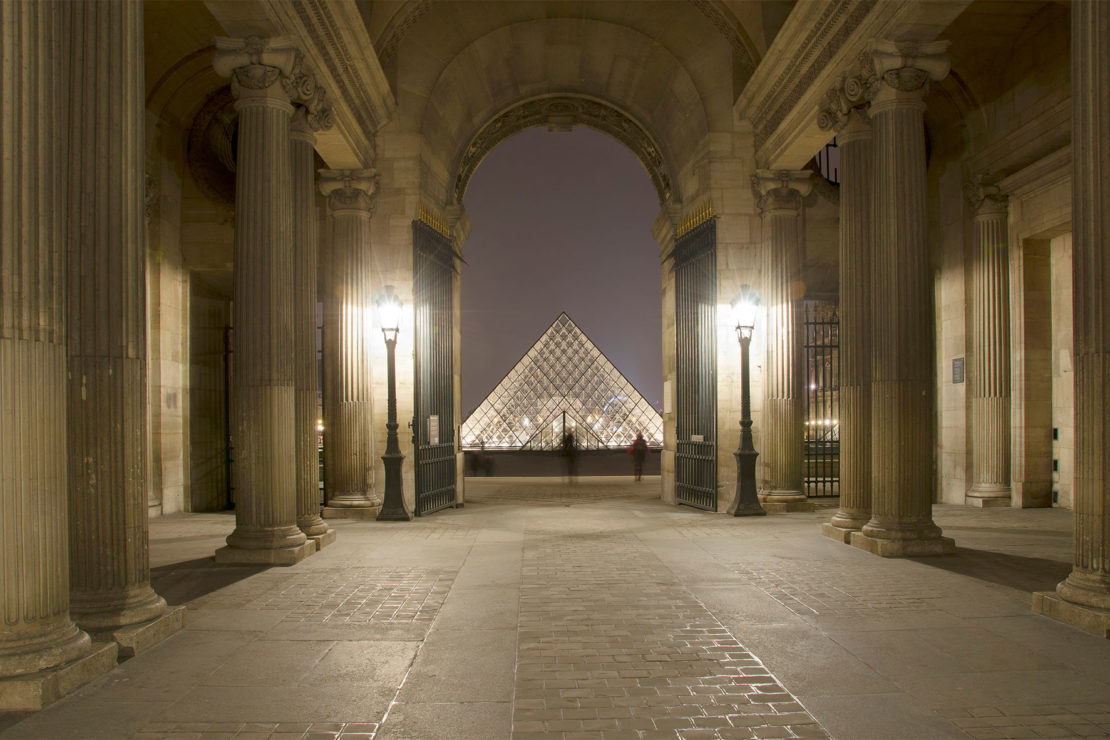
When I talk to friends back in Britain about living in Paris, one of the most common responses is: "Oh, doesn't it feel really quiet these days? Isn't everyone leaving?" I never know what to say. "There are people walking around," I tell them. "There are a lot of cars on the boulevards." They shake their heads in disbelief, because of something they've read. It's not surprising, when a cursory Google brings up an article in The Daily Telegraph entitled, The French Flee a Nation in Despair. The Evening Standard calls this supposed great emigration 'L'exodus'.
But Paris is a far cry from Detroit. It has a stable population of around 2.2 million, up by around 100,000 since 1999. Include the suburbs and the population has risen from 10.9 million to 12 million. More difficult to prove or disprove are the headlines surrounding certain subsets: the super-wealthy avoiding Hollande's 75 per cent 'supertax'; or entrepreneurs absconding in their droves to escape stringent labour laws and rampant bureaucracy. With the former, I detect a soupçon of scaremongering: the tax was never implemented and has now been dropped. To look into the latter, I arranged to meet with Paulin Dementhon, the 36-year-old CEO of one of the biggest success stories in a sector that doesn't immediately spring to mind when you think of Paris: technology startups.
Dementhon's car-sharing startup Drivy allows users to rent cars directly from those who own them. "It's a proximity service which is going to be an alternative to car ownership," he tells me at his open-plan office on a quiet street in the 11th arrondissement. "If you live in any major city in France you can use it to find a car near home." Drivy is expanding into Europe. In 2013 it launched in Germany, and there are plans to launch in Spain by summer. Of the 20 or 30 companies around the world making a play for this kind of peer-to-peer car rental service, Drivy is one of the biggest, with around 400,000 members.
"Paris doesn't have the size in terms of startups as San Francisco and London but it's picking up," he says. "Venture capital used to be really hard to raise but now it's accessible. You have more funds, more business angels. International funds are putting a foot into Paris. They have acknowledged that there are really large business opportunities here and not only small, local ones."
The biggest Parisian startup success is the ridesharing service BlaBlaCar, which recently made the headlines after raising $100m of investment. It currently facilitates 2m rides per month, has a presence across Europe, including Russia and Turkey, and has just launched in India. Another significant player is the Food Assembly, allowing people to buy food directly from local producers. "Even Silicon Valley giants like Air B&B and Uber have their number one operation outside the US in Paris rather than London or Berlin," says Dementhon: although he concedes: "You can explain that with Air B&B by the fact that Paris is the world's number one tourist destination so maybe it fits in with the 'museum city' idea."
When I mention the supposedly stifling labour regulations, Dementhon shrugs. "They apply more to large corporations. Really, it's very easy to create a business in France. The labour rules are not so hard. France is famous for having high taxes but actually, you have a lot of incentives when you are a small business, especially an innovative business." He sees the country's universities as being integral to its potential. "I think what is good for France is that we have very strong engineering talent. We have these famous grandes écoles which turn out very skilled engineers. These people used to leave to [go to] Silicon Valley and work at Google, Facebook, Amazon and so on. The goal, if all this takes off in Paris, is [to] keep more of these people in the country."
Some of the most vehement advocates of the 'museum city' hypothesis I've met – and the keenest to leave town – are recent graduates from these grandes écoles that produce much of France's top-tier elite. I ask Lex Paulson, an American professor of rhetoric at the grande école Sciences-Po, which has provided France with most of its post-war presidents, what he thinks. "Talking to students gives you a really interesting range of views on what kind of a city Paris is in 2015," he tells me. "One reaction is to say France is falling behind. And there's evidence for that point of view if you look at economic indicators and where young people are trying to move to. But there are plenty of counter-indicators as well, for example the amount of people from China and Africa who want to move here. A small part of that is the aesthetics and the romance but a large part of it is the fact that French society and French culture is invested in a kind of excellence. It's invested in education, and it's invested in architecture."
Paris doesn't have the size in terms of startups as San Francisco and London but it's picking up. You have more funds, more business angels
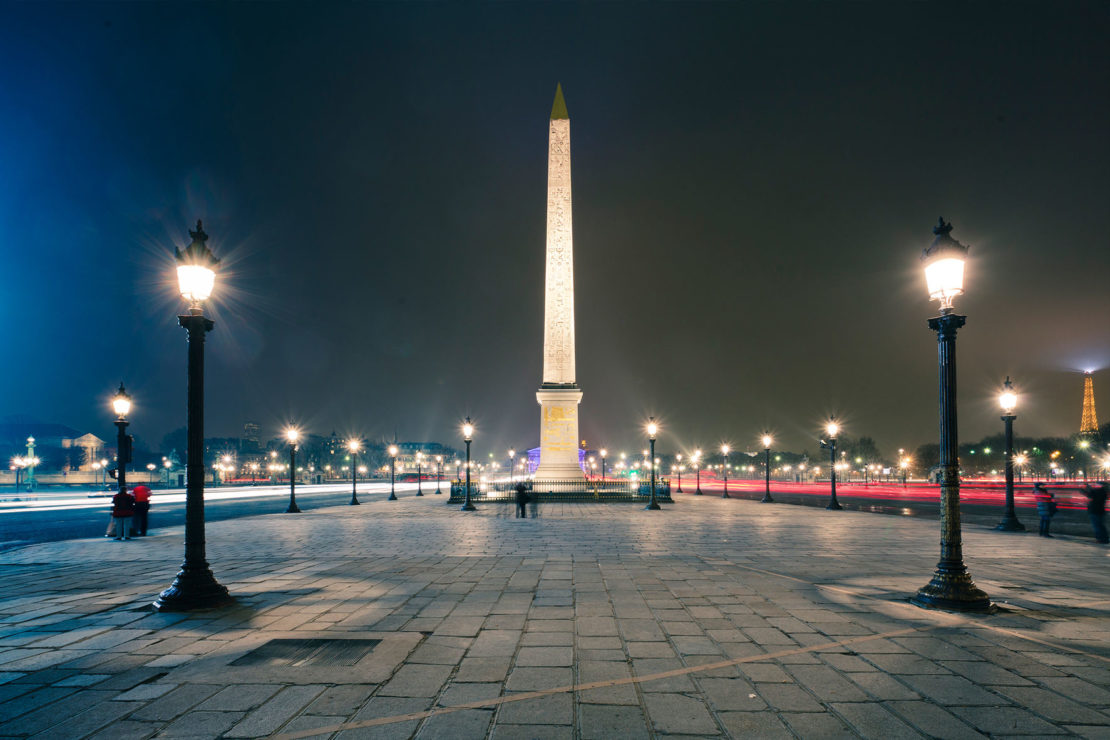
There's no denying the allure of older French architecture as you wander down the city's wide boulevards, flanked on either side by stunning apartment buildings with high windows and ornate balconies. If there's a downside to Haussmann's 19th-century renovation of Paris it's that the city has for a long time felt more or less complete. What's left to do here? Barring a few patches of postmodernity on former industrial enclaves, there's a sense that any new architectural gestures, no matter how bold, must be seen to consolidate an existing masterpiece, or at least not ruin it. One of the most high-profile recent uses of the term 'museum city' was in the debate over the proposed Triangle Tower in the 15th arrondissement, towards the southern city limits. The Herzog & de Meuron-designed glass and steel pyramid, set to tower over the surrounding area, was backed by socialist mayor Anne Hidalgo, only to be rejected by the city council. "We risk becoming solely a city with a history," said flabbergasted architect Jacques Rougerie in response to the decision; "A museum piece with no outlook on the future." Look elsewhere, however, and you find a city that is careful about what it allows but is not completely averse to the new. There's the recently-opened Philharmonie de Paris concert hall, generally thought to be a triumph, despite the original architect attempting to have his name removed from the building (it's a long story). And there's the Louis Vuitton Foundation, a spectacular cultural centre designed by Frank Gehry, which opened last year.
Significantly, the Foundation is just outside the vast ringroad that encircles Paris, the périphérique; so it is not actually in Paris but in a rather well-heeled suburb. This is an important way in which the French and British capitals differ, not just physically but psychologically. London has no solid boundary to speak of. It gently sprawls into the home counties via its edgeland boroughs: Bromley, Dagenham, Redbridge. Paris, meanwhile, is tightly defined: you know when you're in and you know when you're out. The 20 arrondisements found inside the périphériqueare Paris; the surrounding suburbs are not. It is the poorest of these suburbs that are on the frontline of economic troubles, with high unemployment and, since 2005, the threat of riots.
At a cafe in central Paris, I meet Frederique Reibell, who teaches 15- to18-year-old pupils in Seine-Saint-Denis, the somewhat notorious suburb immediately north east of the city (Time Out Paris calls it the department that "best fulfils the negative stereotype of the banlieue"). Reibell sees Paris's problems as being a lot to do with this psychological divide, the social segregation that has seen a small, beautiful city surrounded by all of the messy, lively and less-than-pristine stuff that it does not want to process. When I ask her what her students think of the city inside the ringroad, she says: "I'm not sure my students really go to Paris that much. They just stay in their neighbourhoods. When we talk about what will happen after they graduate, some think of going to Paris but they think it's a different world with different codes and social customs." It's hard to overstate the mental distance involved in making a few steps from banlieue to Paris and vice versa. People do not cross the frontier lightly; some don't cross it at all.
If there's a downside to Haussmann's 19th-century renovation of Paris, it's that the city has for a long time felt more or less complete. What's left to do here?
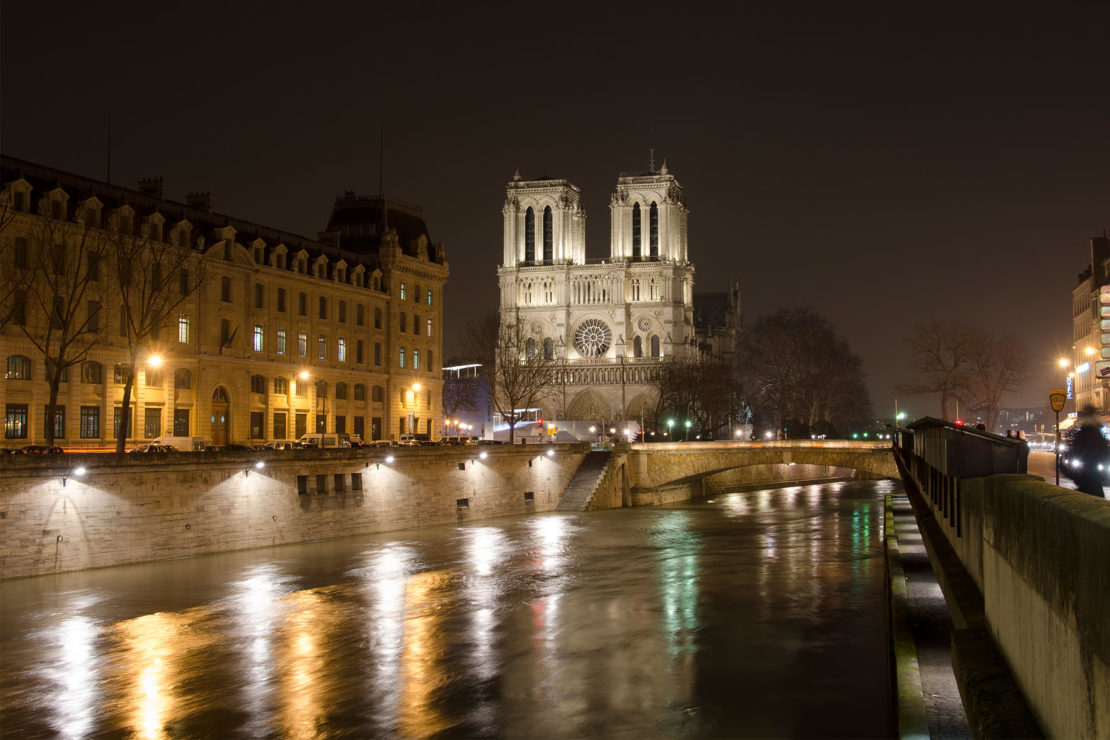
For Reibell, the notion of a museumified Paris is not necessarily wrong, and is closely linked to this psychology of 'inside' and 'outside'. "Paris is a beautiful city with a lot of architectural history, a lot of culture, and a lot of tourists come here to find it. This is not necessarily negative. The issue that Parisians have to fight against is that the city is becoming a ghetto for the rich, and that the middle classes and the working classes are driven away because it has become too expensive. At the moment there's social segregation between Paris and some of the suburbs and it's something that politicians really have to fight against and change."
On 1 January 2016, Paris will, if all goes according to plan, ditch the psychology of the citadel and accept its suburbs as fully-fledged areas of Paris. The Métropole du Grand Paris is a new administrative entity that will in effect redefine the city, bringing into its fold the old banlieue districts such as Seine-Saint-Denis. Major transport links will underwrite this change. At a stroke, Paris will go from being a relatively tiny 22 square miles to a massive metropolis with an area comparable to that of Greater London. "People in the poor suburbs will belong to the same city as people in the 7th arrondissement [where the Eiffel Tower is]," one of the project’s architects, Pierre Mansat, commented recently. "This is a profound change." Reibell sees the end of social segregation as the key to Paris remaining a globally relevant city: "If Paris can become more dynamic it will [do so] by being more socially mixed, and by being more open to foreigners."
Will the Grand Paris project do away with the dismissive notion of a 'museum city'? Well, who knows. The trouble is, in most media assessments of the city's fortunes, there's no room for complexity. Any negative take on the capital – "The food’s not as good as it was! The economy's in the doldrums!" – becomes evidence of France's demise, rather than an example of a country's inevitable ups and downs. These pieces tend not to mention Parisian Nobel prizewinner Patrick Modiano, or Parisian 'rock star' economist Thomas Piketty. Last year, Andy Street, the managing director of John Lewis, ranted that France is 'finished'. But what would that even mean? Doesn't French-bashing end up telling us more about those doing the bashing? "We look at the French as being self-consciously resistant to change and against Anglo-Saxon capitalism," said Lex Paulson of Sciences Po. "You have one of the largest countries in Europe that has built this really successful culture. But because we see the French as arrogantly resistant, there's a bit of nationalism in our response."